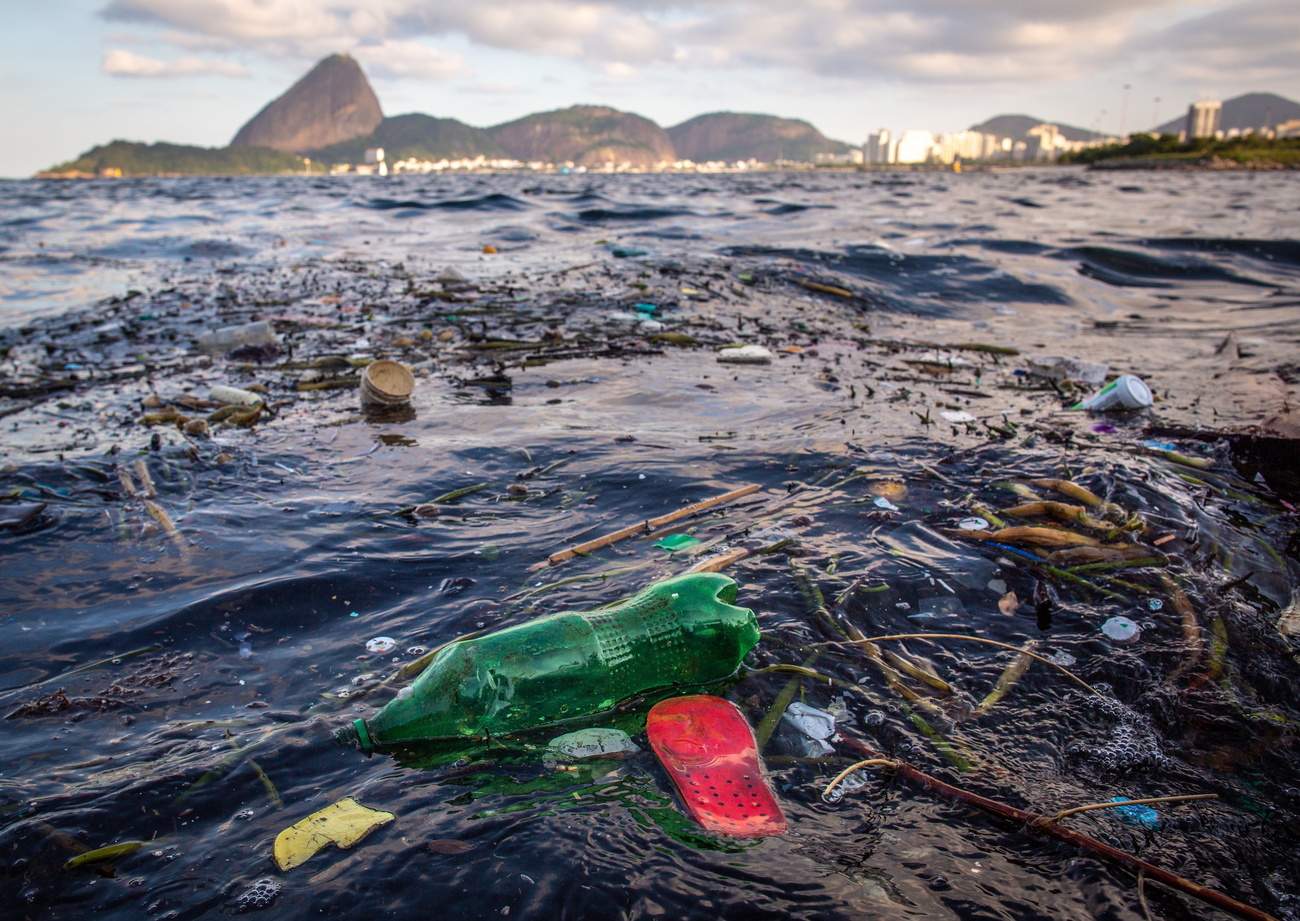It’s time to move beyond ESG bashing
Sustainable investment expert Cécile Biccari argues that recent regulatory moves, including in Switzerland, to clamp down on greenwashing could end up doing more harm than good.
For those of us in the sustainable finance profession, 2022 was a roller coaster. The year saw the most capital invested in sustainability or products classified as meeting so-called ESG (environmental, social, governance) criteria. But as ESG attracted more attention, it also came under more scrutiny, and faced a wave of accusations that many sustainability claims were more fluff than substance.
The more attention is channeled to the problems with ESG, the bigger they seem to be getting.
As we roll into 2023 and new European Union regulation on sustainability financeExternal link comes into effect, it’s worth recalling the ultimate goal of the capital markets – it’s always been, and will likely remain for the foreseeable future, to create value by allocating capital efficiently.

More
Can Novartis’s sustainability-linked bond make good on its promises?
Since the concept of sustainable development was coined in 1987, we have essentially been on a journey to adapt the definitions of “value” and “efficiently” to reflect our growing understanding of planetary boundaries and our desire for more equitable growth.
In 2023 “creating value” no longer refers solely to creating financial value in monetary terms; “efficiency” increasingly means factoring in all resources which contribute to economic activities, including intangible resources and services provided by nature like water and biodiversity. It also means pricing them in according to their true value and internalising their costs.
With that in mind, we should be wary about some of the recent regulatory moves, including those in Switzerland. In December, the Swiss governmentExternal link proposed that a fund could only include the word “sustainable”, “green” or “ESG” in its name if it fulfills narrow criteria. In practice this would mean that broad investment strategies that systematically analyse and reduce a wide range of ESG risks will no longer qualify as “sustainable investment”. Such a term would only be reserved for investments that have a positive impact.
This follows a similar move by the EU in the Sustainable Finance Disclosure Regulation, which aims to improve transparency in the market for sustainable investment products and around sustainability claims made by financial market participants in a bid to prevent greenwashing.
But just how helpful is it to separate the concepts of managing “ESG risks” and delivering “sustainability impacts”, as many regulatory proposals seem to do? Is regulatory perfection becoming the enemy of the good?
As companies have known for decades, managing risks and opportunities are the two sides of the same coin. When a mining company reduces its water consumption, it mitigates the risks of water shortages that could impair its mining operations and simultaneously enables greater access to water for local communities. When a car manufacturer leads the entire industry to hasten the switch to low-emissions vehicles, it makes a significant contribution to combating climate change, but scaling up the production of electric batteries also creates new environmental and human rights risks in automotive supply chains.

More
Sustainable investments boom in Switzerland
The problem is that narrowing the definition of what is “sustainable” to only one side of the coin is likely to cause a growing pool of capital to flow into a small set of assets, leading some to get overvalued, while other areas with the potential for greater impact are overlooked.
We can waste a lot of airtime, ink and intellectual energy on coming up with new terms and definitions, but it won’t change the reality on the ground. Sustainability is a relative concept rather than an absolute truth. Sustainability is about changing our current trajectory so that we can live well on a healthy and resilient planet. Our only two concerns should be: How fast can we deliver change at scale?
We know that we need to change the way we produce our food, for instance, but it should not be limited to pouring money into innovative technologies such as precision fermentation, even though it can bring huge benefits. We also need to continue to encourage large food manufacturers and commodity traders to source raw materials responsibly and halt deforestation. But a narrow definition of “sustainable” won’t encourage these companies to make the changes we need.
Regulation is needed because the industry has shown that it can’t change its practices fast enough on a voluntary basis. But regulation should focus on making sustainable finance the norm rather than creating a small niche of financial products.
If our ultimate goal is to steer capital towards sustainable value creation, then there needs to be a more holistic view of how ESG issues shape investment decisions.
By getting caught up in the details, we are missing the opportunity to focus on the real prize: to ensure that most assets are managed with sustainability in mind. This requires a change of mindset for more than 90% of portfolio managers and financial analysts in the world. This behavioural change will come when fund managers have a deep knowledge of sustainability issues and are incentivised to take them seriously.
As Switzerland assesses its options to align with EU regulations or choose its own path, it should consider the unique opportunity it has to remain pragmatic and encourage a diversity of approaches that can deliver impact at the speed and scale we need.
Edited by Jessica Davis Plüss/Virginie Mangin.

In compliance with the JTI standards
More: SWI swissinfo.ch certified by the Journalism Trust Initiative













You can find an overview of ongoing debates with our journalists here . Please join us!
If you want to start a conversation about a topic raised in this article or want to report factual errors, email us at english@swissinfo.ch.